CANADA
“The world is a book and those who do not travel read only one page” -- St. Augustine
Nova Scotia, Canada
Halifax - Cruise #2 (Sept 2010)
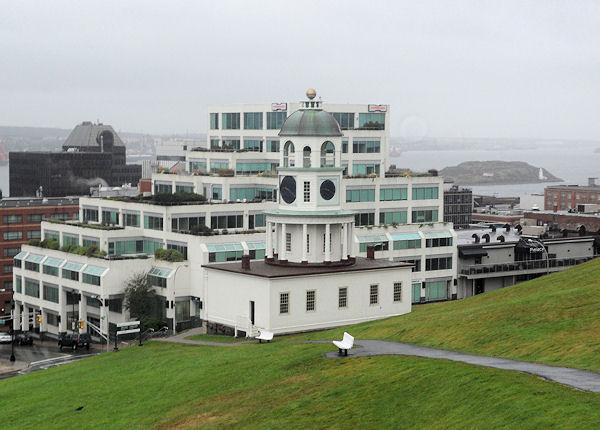
The Halifax Town Clock has served the residents for over 190 years
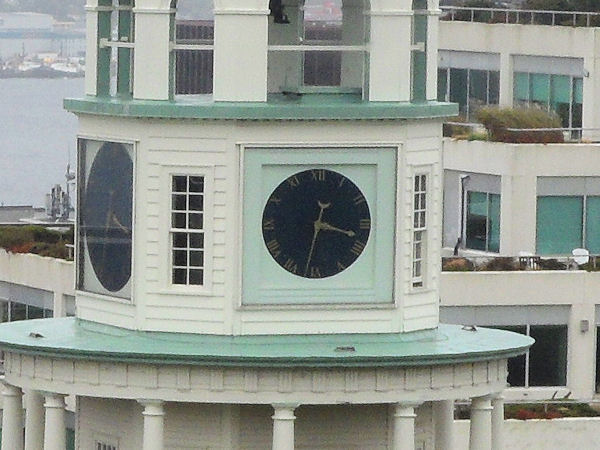
The four sided clock face displays Roman numerals
but the hour 4 is shown as IIII and not as IV, for artistic balance
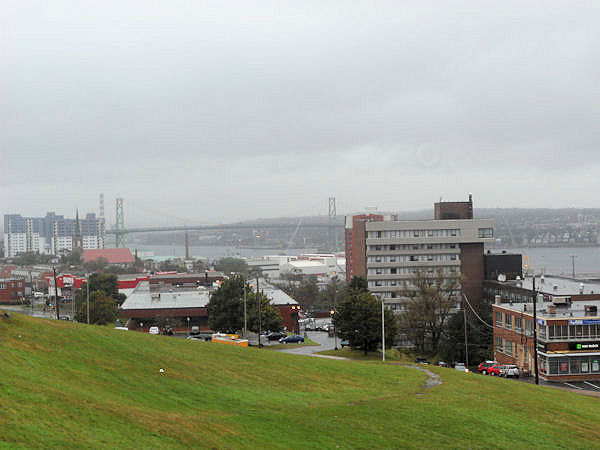
Halifax was once the receiving center
for immigrants and refugees who traveled to Canada
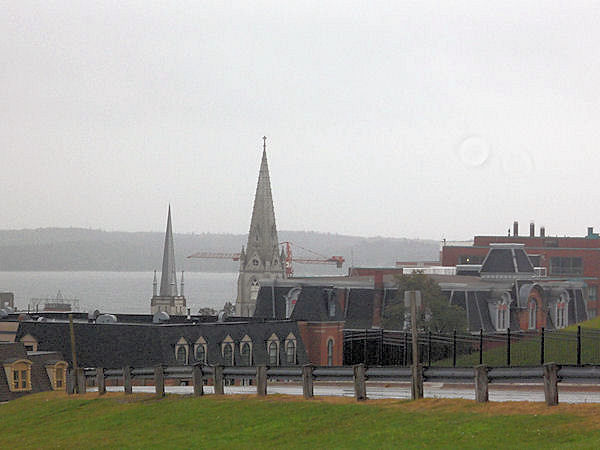
St. Mary's Cathedral Basilica
This Catholic cathedral located in downtown Halifax
has a facade and spire made entirely of local granite.
The basilica boasts the tallest granite spire in North America
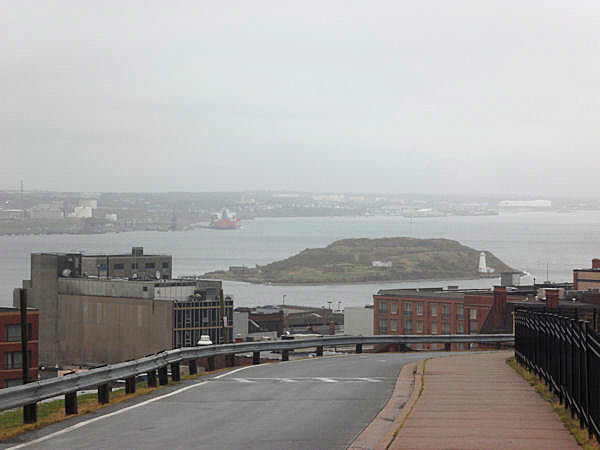
Halifax is the second largest natural harbor in the world after Sydney.
It was founded by Colonel Edward Cornwallis in 1749
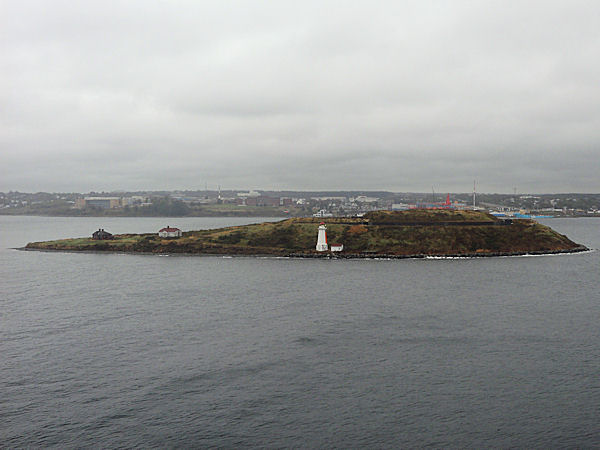
Georges Island played a key role in the harbour's defence system
for almost 200 years and has been named a National Historic Site
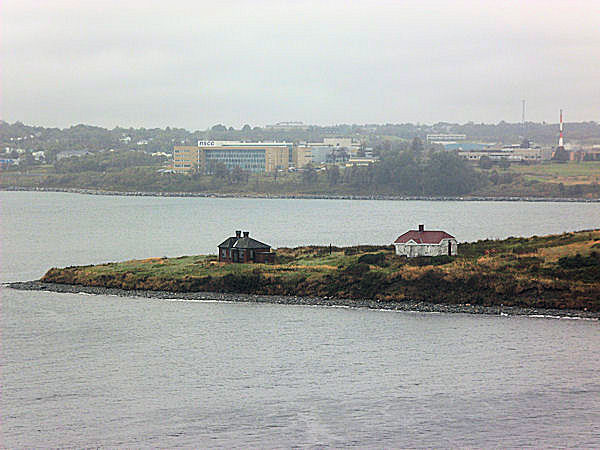
Although Georges Island is not open to the public,
the federal heritage department is currently restoring its fortifications
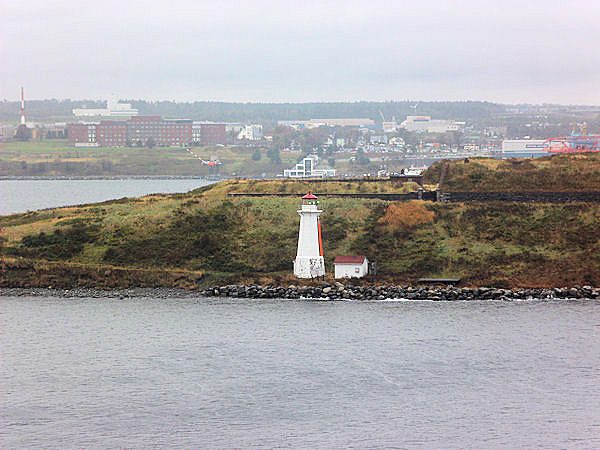
Georges Island lighthouse
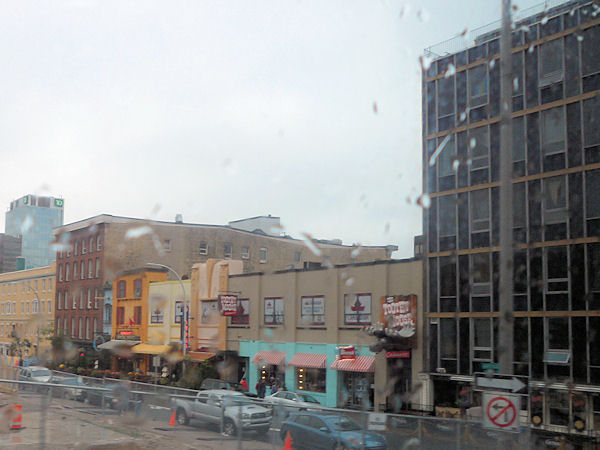
There is only about a quarter million people who reside in Halifax

In Halifax the sea often determines the temperatures and weather.
At least one out of every three mornings all year long a unique fog comes to Halifax
Halifax Citadel
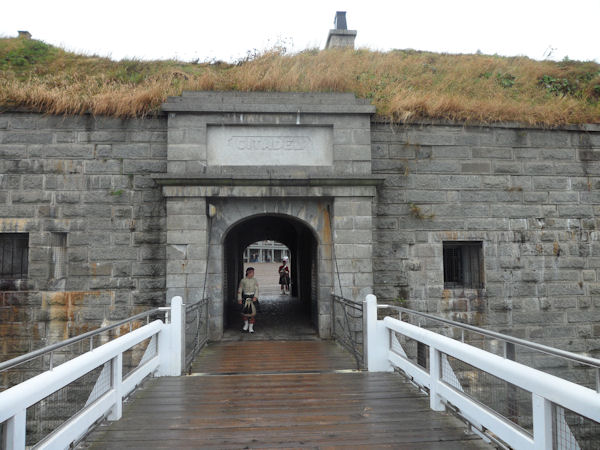
The Halifax Citadel occupies the hill overlooking the harbour.
In 1869 the most famous Scottish unit in the British Army,
the 78th Highland Regiment, was stationed here
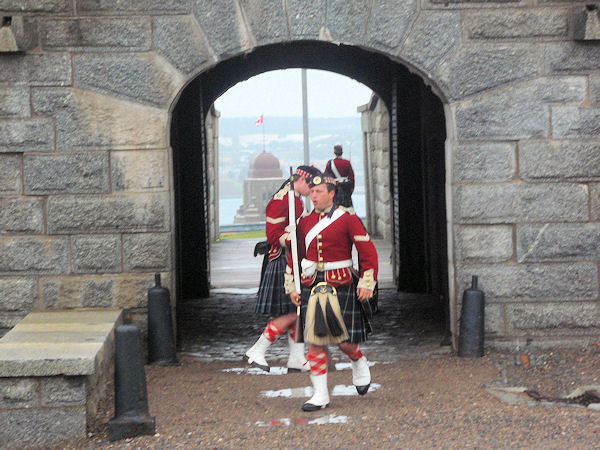
78th Highland Regiment presented an impressive sight
in their MacKenzie tartan kilts, feather bonnets and bright red doublets
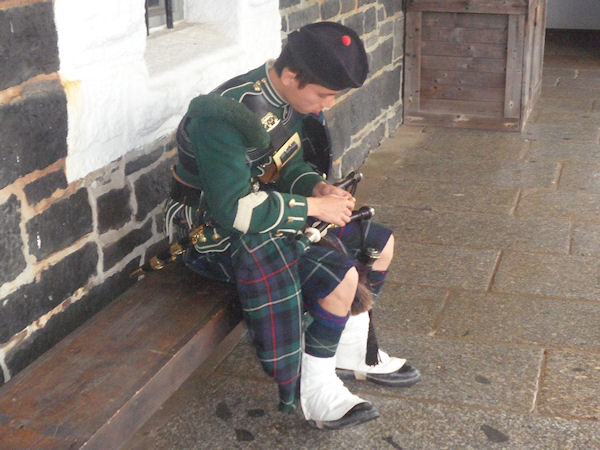
The Pipers, dressed in contrasting green uniforms,
were the heart and soul of the 78th Regiment
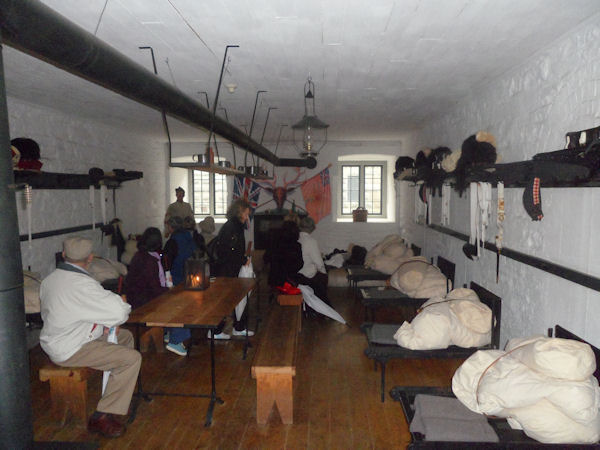
The soldiers' life inside the barracks
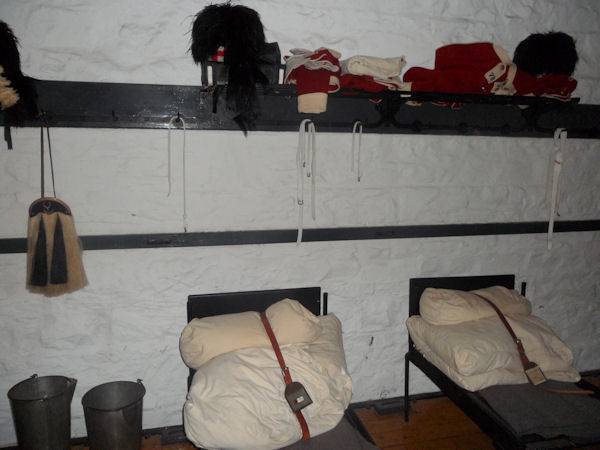
Clean clothing and feathered bonnet
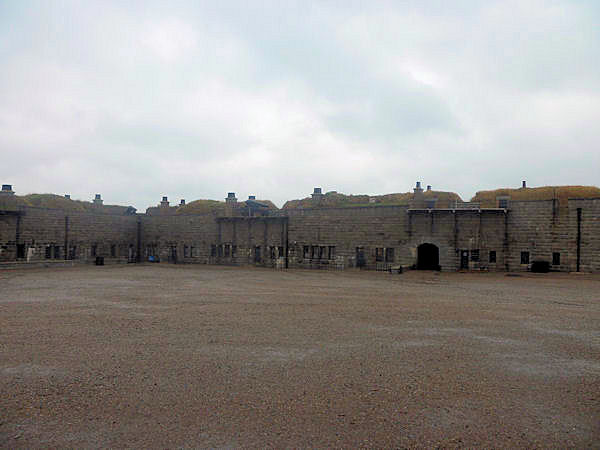
The Citadel was established to guard against an attack from the United States.
This massive, star-shaped, masonry fortification took 28 years to build
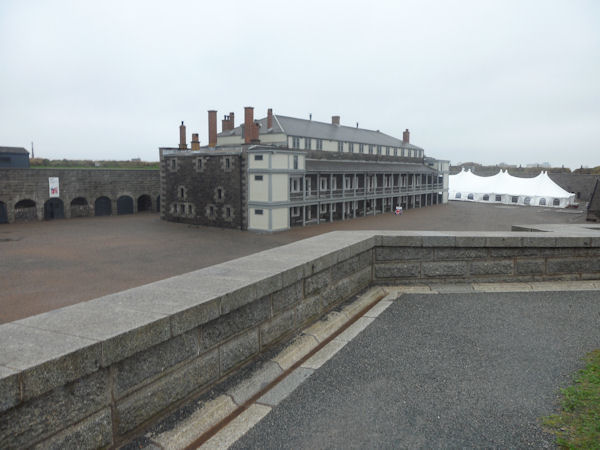
The Citadel is an excellent example of a 19th-century bastion fortification
complete with defensive ditch, ramparts, musketry gallery,
powder magazine and signal masts
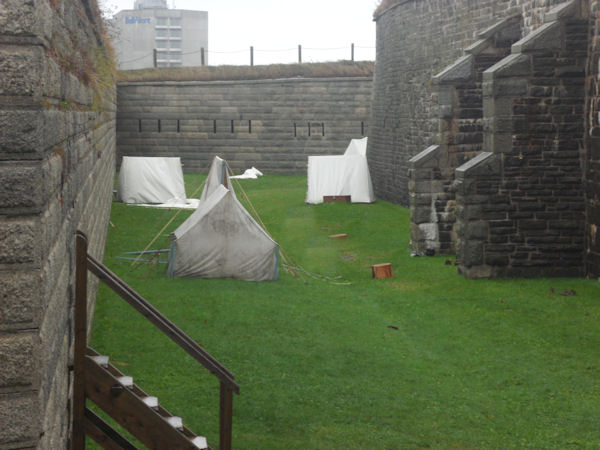
The defensive ditch of the fortification
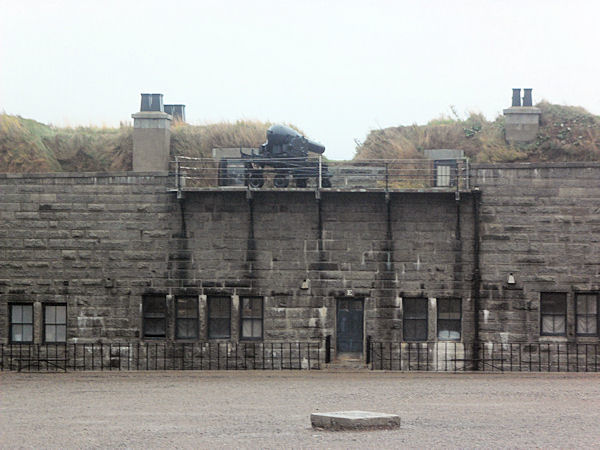
The powder magazine and musketry gallery
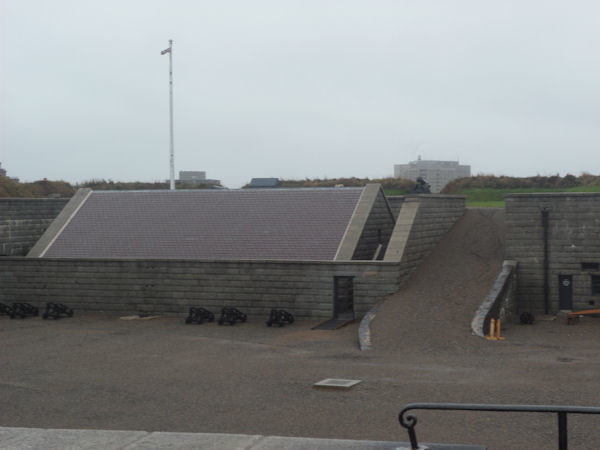
The ramparts and signal masts. A small flag is flown due to the inclimate weather
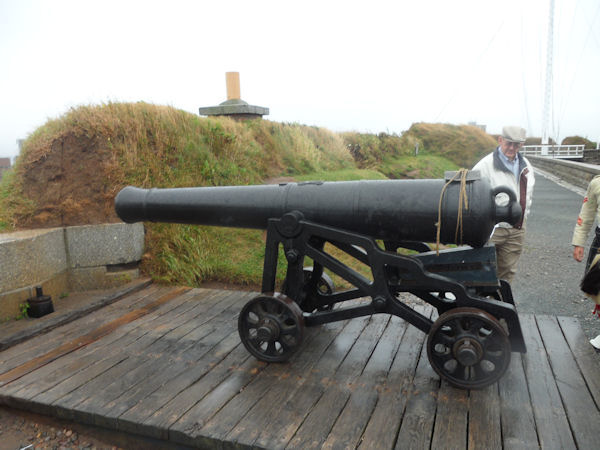
In response to the introduction of powerful rifled guns in the 1860s,
the Citadel upgraded its armaments
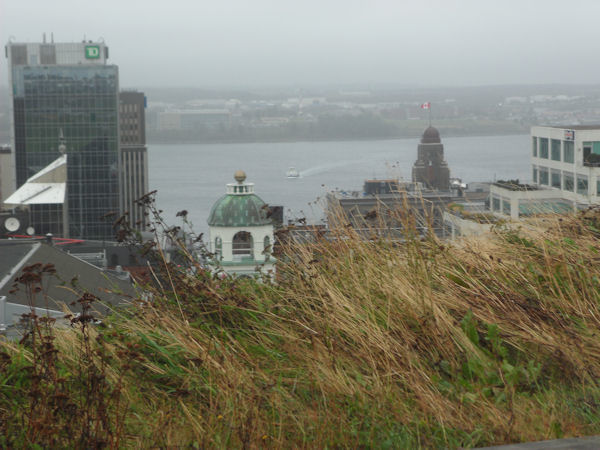
For the first time it could defend the harbour and the land approach
because the new artillery fired heavier shells a greater distance
and with more accuracy
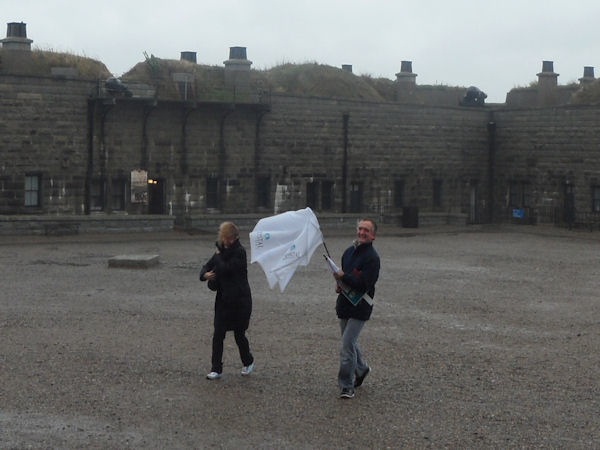
This photo says it all about the weather
Halifax in History
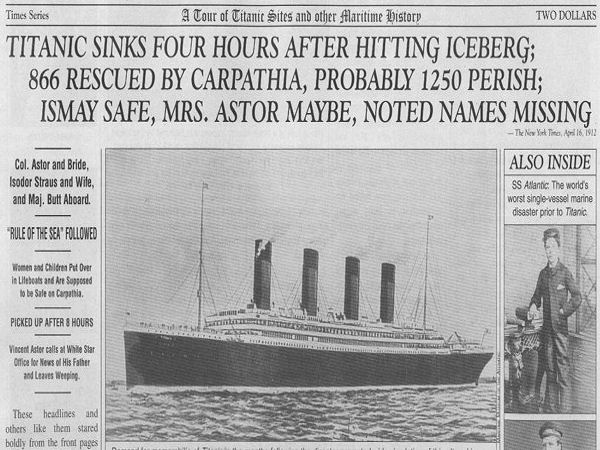
Halifax will forever be linked to the Titanic.
Three of its ships were involved in the grim task of recovering victims,
many of whom were laid to rest in three of the city's cemeteries.
In all 328 bodies were recovered including one child
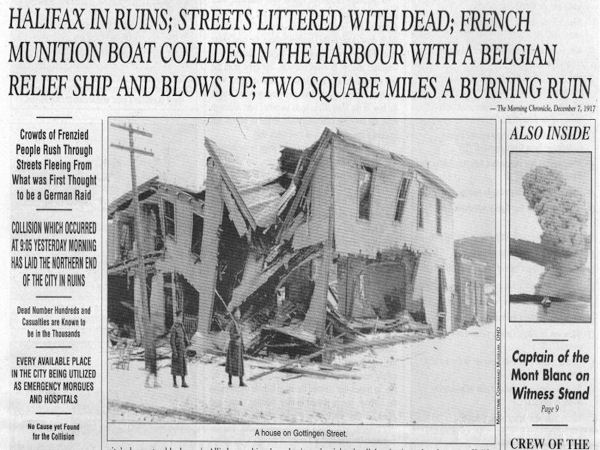
December 6, 1917, a French Military vessel, loaded with 2,500 tons of explosives,
collided with a Belgian ship, caught fire and exploded.
Peices of iron and shrapnel have been found 3 miles from the waterfront
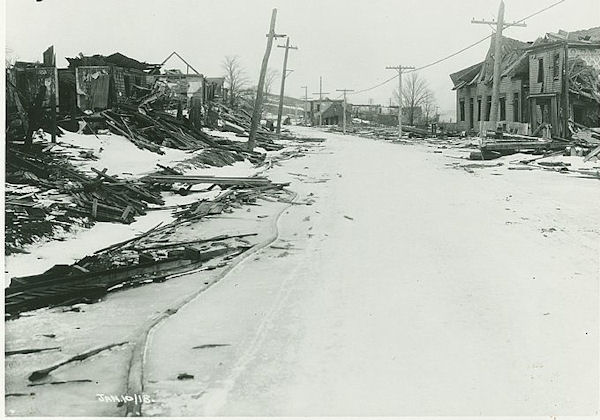
Halifax December 6, 1917
1,635 people killed and thousands more injured.
Not a house in the city escaped damage.
The following day a blizzard hit, crippling recovery efforts
Peggy's Cove
Cruise #2 (Sept 2010)
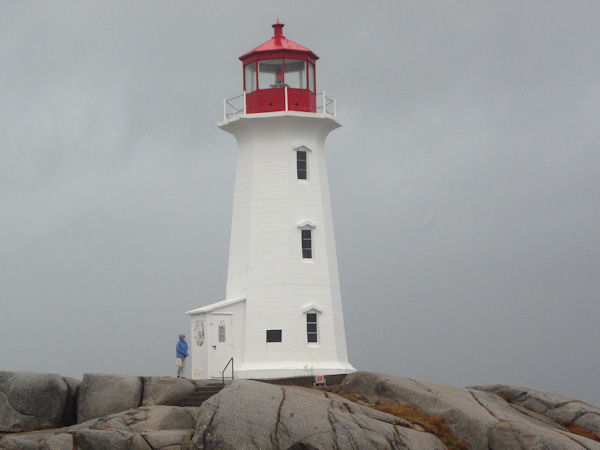
Peggy's Cove Lighthouse is one of the most photographed structures
in Atlantic Canada and one of the most recognizable lighthouses in the world.
The lighthouse now contains a small Canada Post office
where letters receive a special stamp
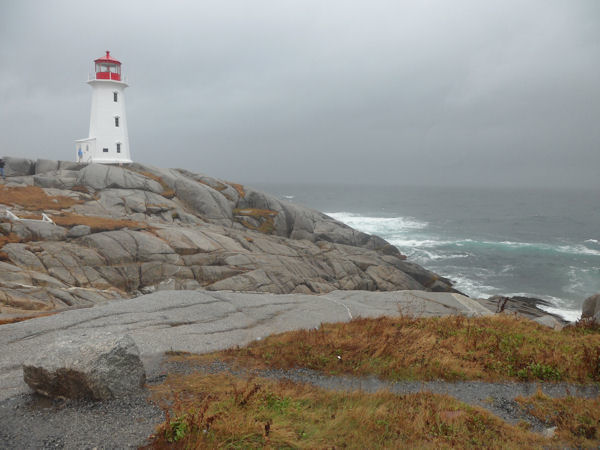
Peggy's Cove Lighthouse marks the eastern entrance of St. Margarets Bay.
It is situated on an extensive granite outcrop at Peggy's Point
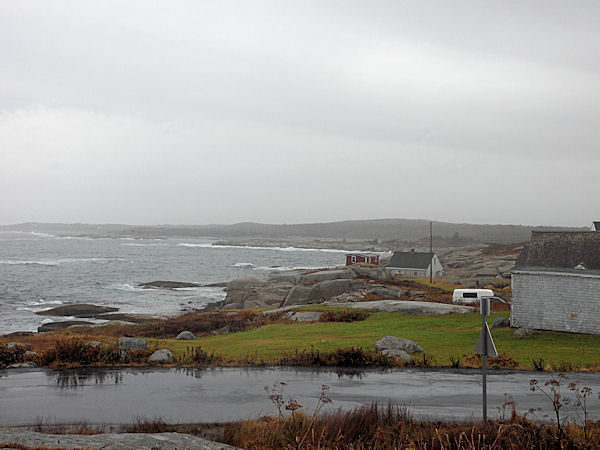
The pristine beauty of the Coastal Region
encompassing the shores of the scenic St. Margaret's Bay
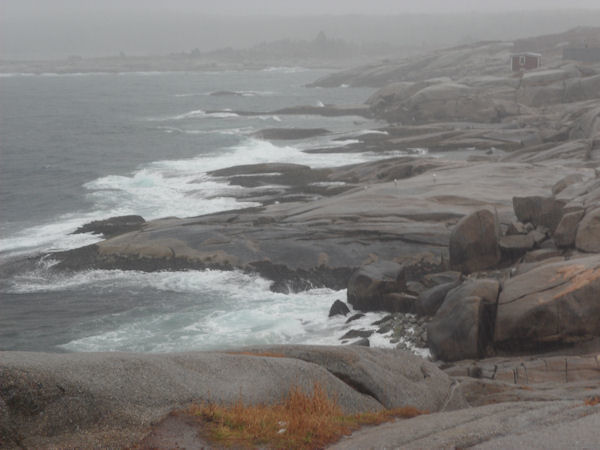
Peggy's Cove Local folklore has several alternative origins for the name.
Some people claim Peggy was an early settler,
while others say she was a survivor from a shipwreck
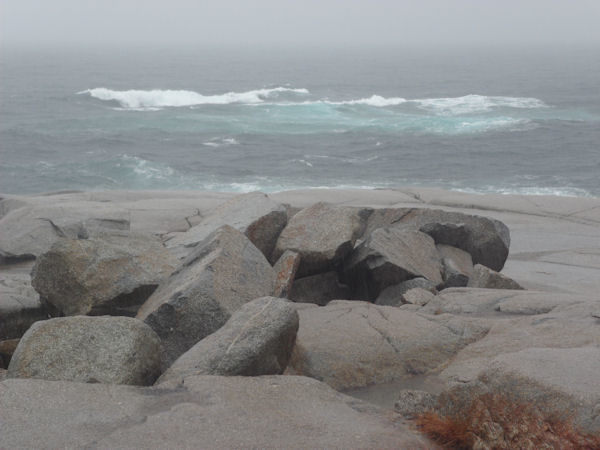
St. Margaret's Bay
Peggy's Cove may have taken its name from the bay
since Peggy is a nickname for Margaret
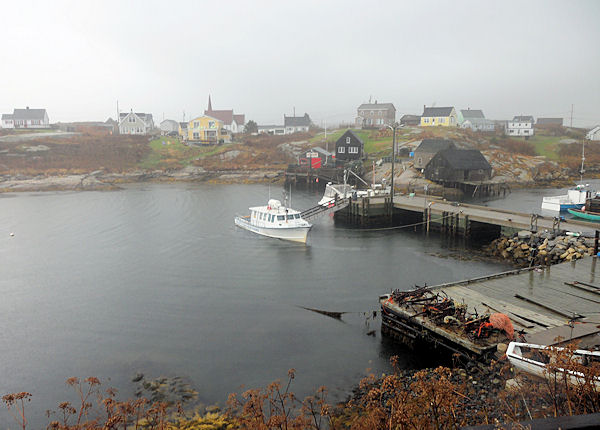
Peggy's Cove maintains a rural, undeveloped appearance
as the inhabitants continue to fish for lobster
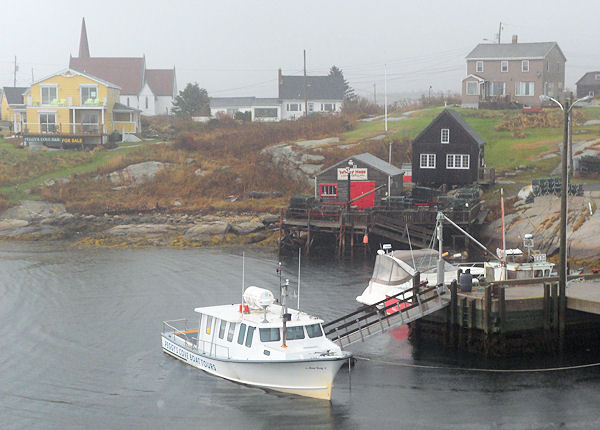
A Lobster fisherman with one boat could set, pull, and reset
over 100 traps a day collecting anywhere from 100 to 1000 lobsters
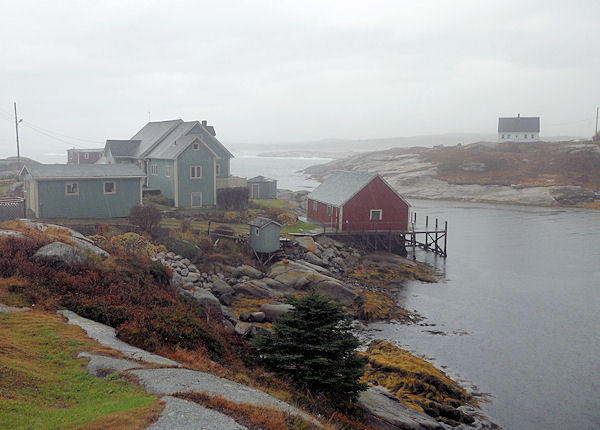
Peggy's Cove
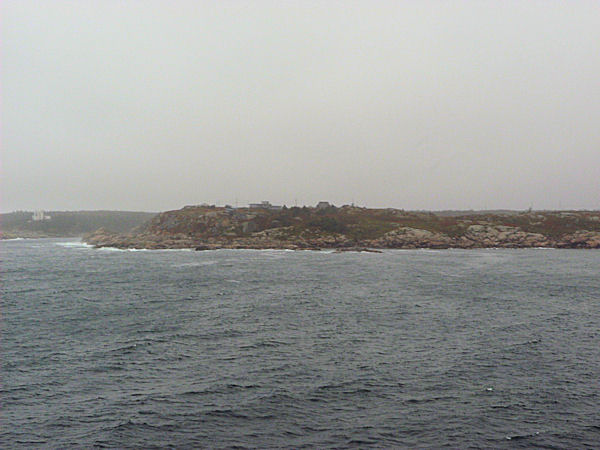
At St. Margarets Bay near the tiny fishing community of Peggy's Cove,
a flight from New York City to Geneva, Switzerland crashed
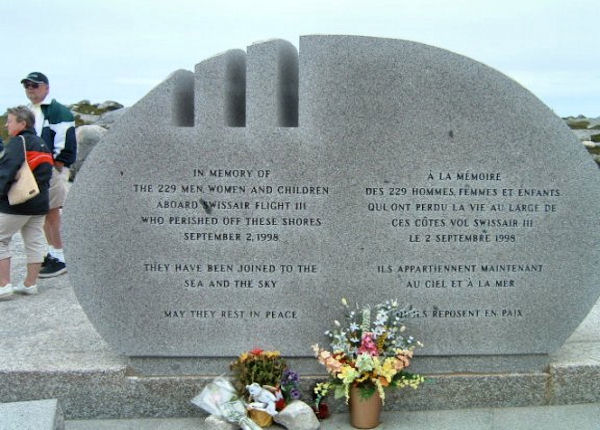
On September 2, 1998 Swissair Flight 111
crashed at the entrance to St. Margarets Bay killing all 229 people on board
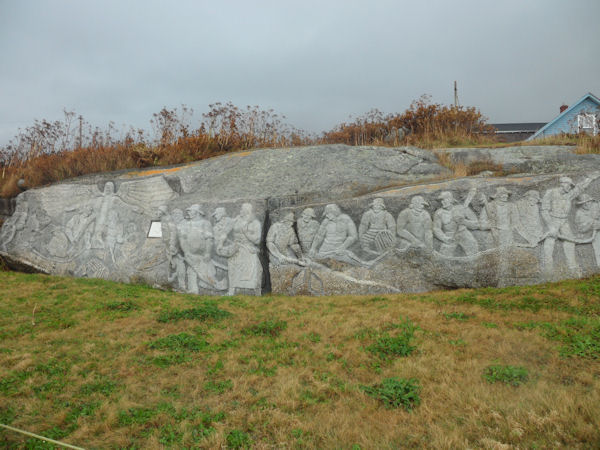
William deGarthe's Memorial
A famous resident of Peggy's Cove, deGarthe carved this memorial,
to honor the courage of the fishermen living in the cove,
from a granite outcrop in his backyard
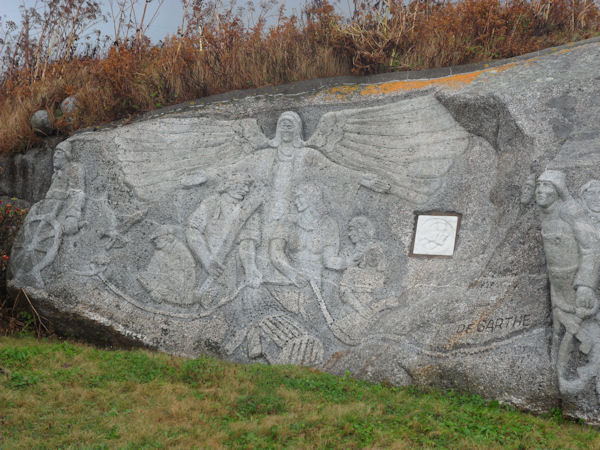
William deGarthe's Memorial
The first section depicts the fisherman's family with St. Elmo, the patron saint of sailors
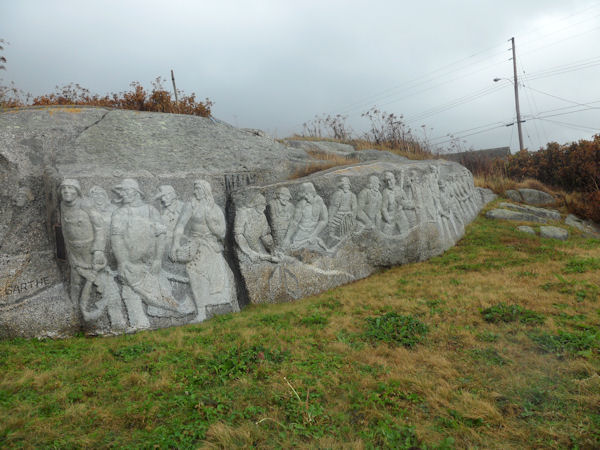
The Memorial's second section depicts Peggy of the Cove.
The third section is fishermen at work with a dory, nets and other implements.
DeGarthe passed away before the memorial was completed.
Videos
Halifax Citadel
Dressed in contrasting green uniforms, the pipers are the heart and soul of the 78th regiment
Peggy's Cove
A windy and rainy day at Peggy's Cove, Nova Scotia, Canada
Maps
©Copyright 2000
All rights reserved. No part of this publication may be reproduced,
stored, or transmitted in any form without my prior permission. Charles Tyrrell, Webmaster
stored, or transmitted in any form without my prior permission. Charles Tyrrell, Webmaster